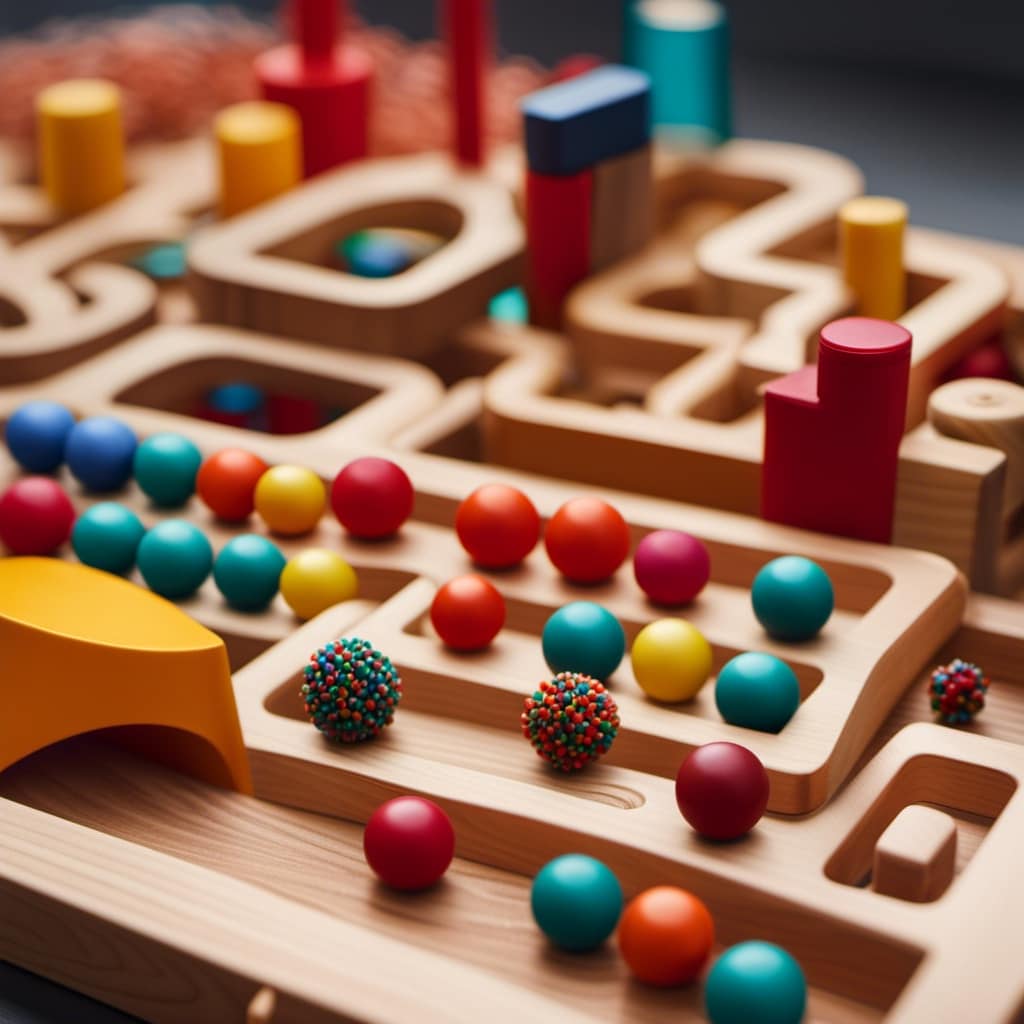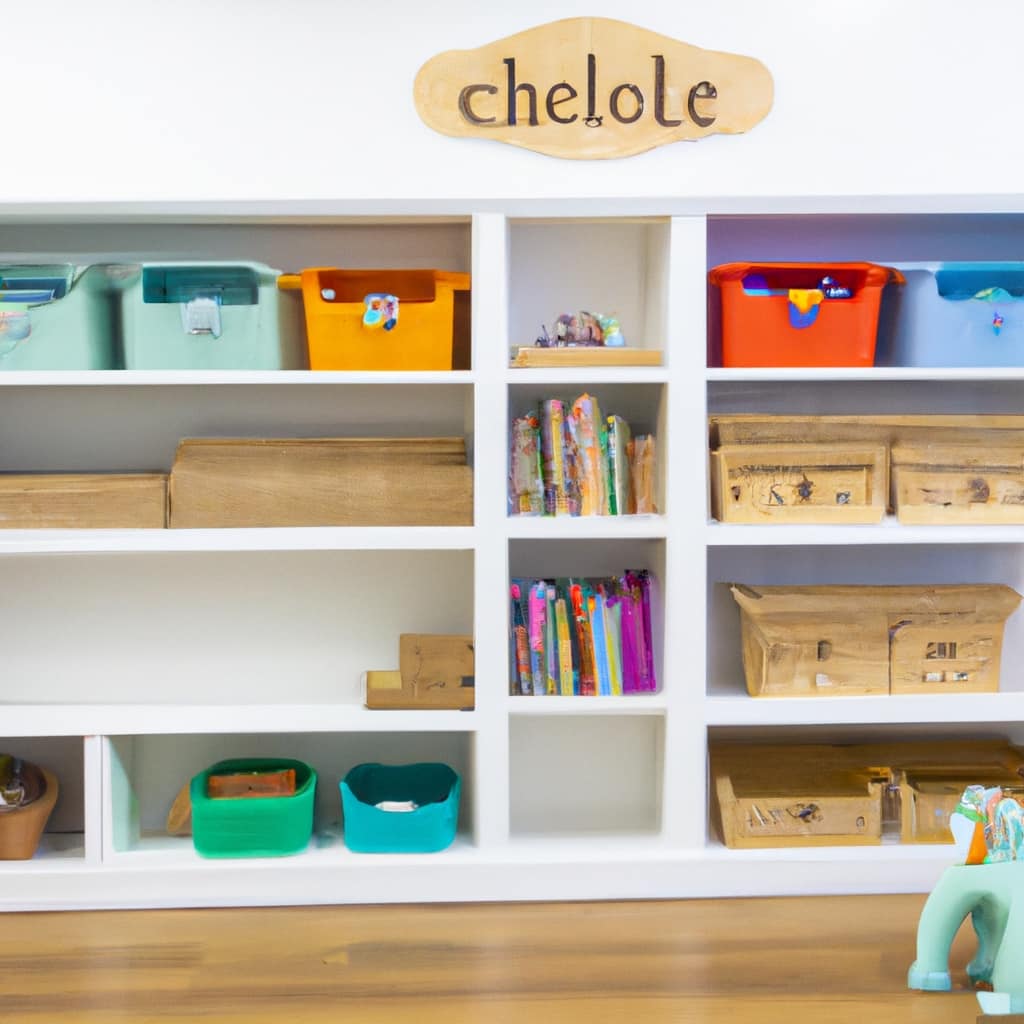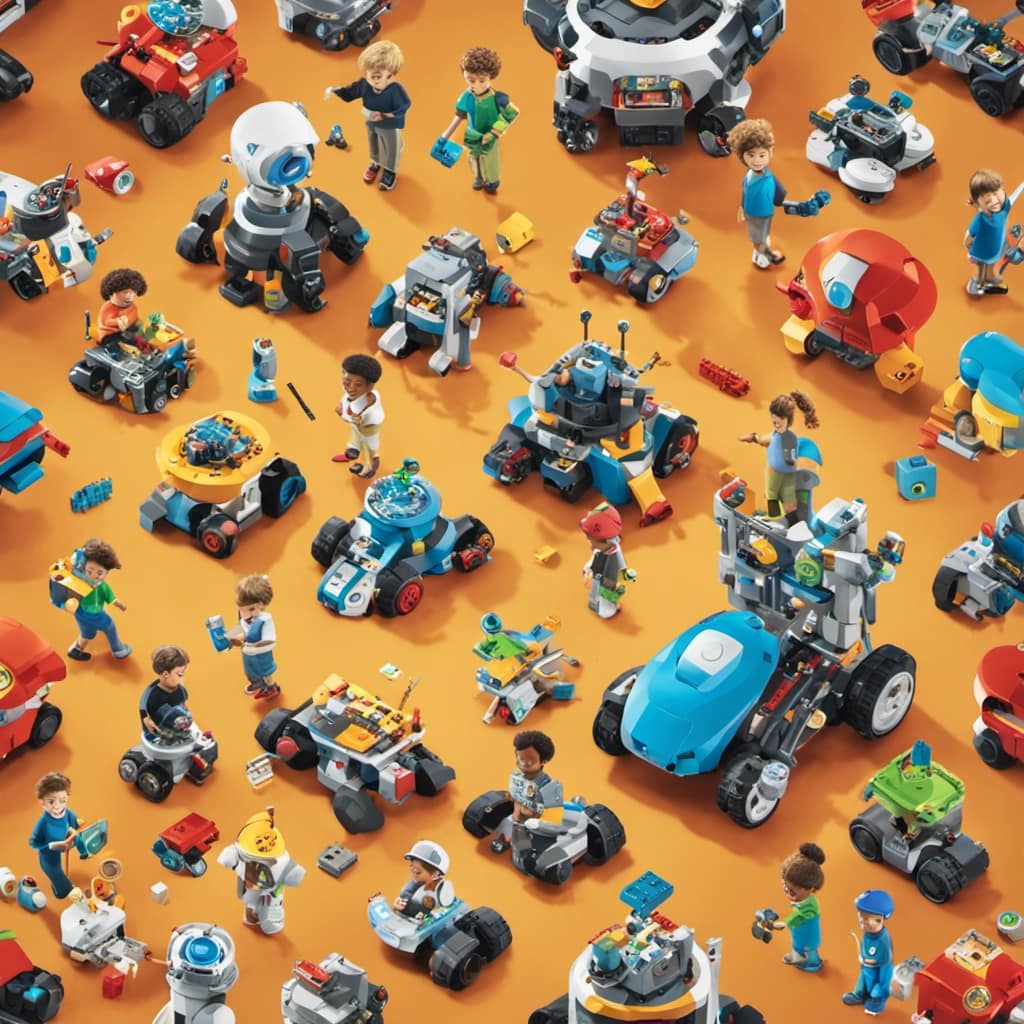Did you know that choosing toys that are suitable for a preschooler’s age can have a big impact on their development?
At our company, we understand the importance of providing children with toys that align with their age and stage of development.
In this article, we will explore the benefits of age-appropriate toys, the role of Montessori toys in promoting learning, and how to select toys based on developmental milestones.
Join us as we delve into the world of age-specific toys for preschoolers.

Key Takeaways
- Age-specific toys are crucial for cognitive development and social-emotional growth.
- Montessori toys promote hands-on learning, creativity, and problem-solving skills.
- Toy selection should align with a child’s developmental milestones to ensure appropriate challenge.
- Factors to consider in age-appropriate toy choices include individual abilities, safety, and social-emotional development.
Importance of Age-Specific Toys
We understand the significance of age-specific toys for preschoolers. Choosing toys that are appropriate for a child’s age is essential for their cognitive development and social-emotional growth.
Research has shown that age-specific toys are designed to stimulate a child’s brain and promote learning in a way that matches their developmental stage. For example, toys that encourage problem-solving skills, such as puzzles or building blocks, can enhance a child’s cognitive development by promoting critical thinking and logical reasoning.
Additionally, age-specific toys that involve pretend play or cooperative activities can foster social-emotional growth by encouraging communication, sharing, and empathy among children.
Benefits of Montessori Toys
While discussing the benefits of Montessori toys for preschoolers, it is important to consider their impact on a child’s learning and development. Montessori toys are specifically designed to promote educational growth and enhance various skills in young children. These toys offer several advantages that contribute to a child’s overall development.

One of the key benefits of Montessori toys is their focus on hands-on learning. These toys encourage children to actively engage with their environment, fostering creativity and problem-solving skills. Additionally, Montessori toys promote independence and self-directed learning, empowering children to explore and discover at their own pace.
To further emphasize the benefits of Montessori toys, let’s take a look at this table:
| Benefits of Montessori Toys |
|---|
| Promote hands-on learning |
| Encourage creativity and problem-solving skills |
| Foster independence and self-directed learning |
Incorporating Montessori toys into a child’s playtime not only provides entertainment but also enhances their educational journey. These toys create a stimulating environment that enables children to develop various skills while having fun.
With a clear understanding of the benefits of Montessori toys, it is important to now explore how these toys align with a child’s developmental milestones and toy selection.

Developmental Milestones and Toy Selection
When selecting toys for preschoolers, it’s crucial to consider their developmental milestones. Play is an essential aspect of early childhood, as it contributes to the overall development of children. Toy selection plays a significant role in fostering cognitive development, which includes skills like problem-solving, creativity, and critical thinking.
Here are two important considerations when choosing toys based on developmental milestones:
-
Age-appropriate toys: Toys that are designed for specific age groups are more likely to align with the child’s developmental stage, ensuring that they’re challenging but not overwhelming.
-
Skill-building toys: Look for toys that encourage the development of specific skills such as fine motor skills, language development, or social interaction.

Understanding the importance of play in early childhood and the impact of toy selection on cognitive development enables us to make informed choices that support children’s growth and learning. In the next section, we’ll explore the factors to consider in age-appropriate toy choices.
Factors to Consider in Age-Appropriate Toy Choices
To make informed choices when selecting age-appropriate toys for preschoolers, it’s important to consider several factors.
These factors can help ensure that the toys we choose aren’t only safe, but also promote the development and learning of young children.
One important factor to consider is the child’s individual abilities and interests. Each child develops at their own pace, so it’s crucial to choose toys that align with their current skills and knowledge.

Additionally, considering the toy’s complexity and level of challenge is essential. Toys that are too easy may bore the child, while toys that are too difficult may frustrate them.
It’s also important to consider the toy’s durability and safety features. Toys should be sturdy and free from small parts that can pose a choking hazard.
Finally, considering the child’s social and emotional development is crucial. Toys that encourage cooperative play, creativity, and self-expression can support their overall well-being.
Top Age-Specific Montessori Toys
Now, let’s explore some of the top age-specific Montessori toys that can further enhance the development and learning of preschoolers. When it comes to choosing the best Montessori toys for preschoolers, it’s important to consider their age and developmental stage. Here are some top age-specific Montessori toys that are highly recommended:

-
For 2 to 3-year-olds:
-
Shape-sorting toys: These toys help children develop their fine motor skills and hand-eye coordination as they fit different shapes into corresponding holes.
-
Stacking blocks: Stacking blocks encourage children to explore balance, spatial awareness, and problem-solving skills.
-
For 4 to 5-year-olds:

-
Magnetic letters and numbers: These toys promote early literacy and numeracy skills as children learn to recognize letters and numbers and practice forming words and simple equations.
-
Puzzles: Puzzles help develop cognitive skills, problem-solving abilities, and patience, while also enhancing hand-eye coordination and fine motor skills.
Frequently Asked Questions
How Do Age-Specific Toys Contribute to a Child’s Overall Development?
Age-specific toys play a vital role in promoting fine motor skills and language development in preschoolers. They are designed to match their cognitive and physical abilities, fostering optimal growth and learning.
Are There Any Disadvantages of Using Age-Specific Toys for Preschoolers?
There can be some disadvantages of using age-specific toys for preschoolers. It may limit their creativity by confining them to certain play patterns and preventing them from exploring different interests.

What Are Some Common Misconceptions About Age-Appropriate Toy Choices?
Misconceptions about age-appropriate toy choices include limiting creativity and stifling independence. However, research shows that these toys actually enhance development and allow children to explore and learn at their own pace.
Can Age-Specific Toys Help in Fostering Social Skills Among Preschoolers?
Age-specific toys can play a crucial role in fostering social skills among preschoolers. Through role play and group play, children learn to share, take turns, collaborate, and communicate, building important foundations for social interactions.
How Do Age-Specific Toys Enhance a Child’s Cognitive Abilities?
Age-specific toys enhance a child’s cognitive abilities by promoting problem-solving skills and language development. Research shows that children who play with toys designed for their age group demonstrate higher cognitive performance and language skills.
Conclusion
In conclusion, choosing age-specific toys for preschoolers is crucial for their development and learning.

Research has shown that these toys are designed to meet the specific needs and abilities of children at different stages of their development.
Montessori toys, in particular, offer numerous benefits in promoting independence, creativity, and problem-solving skills.
By considering developmental milestones and factors such as safety, durability, and educational value, parents and educators can make informed decisions when selecting age-appropriate toys.
So, why not give your child the best tools for their growth and exploration?











